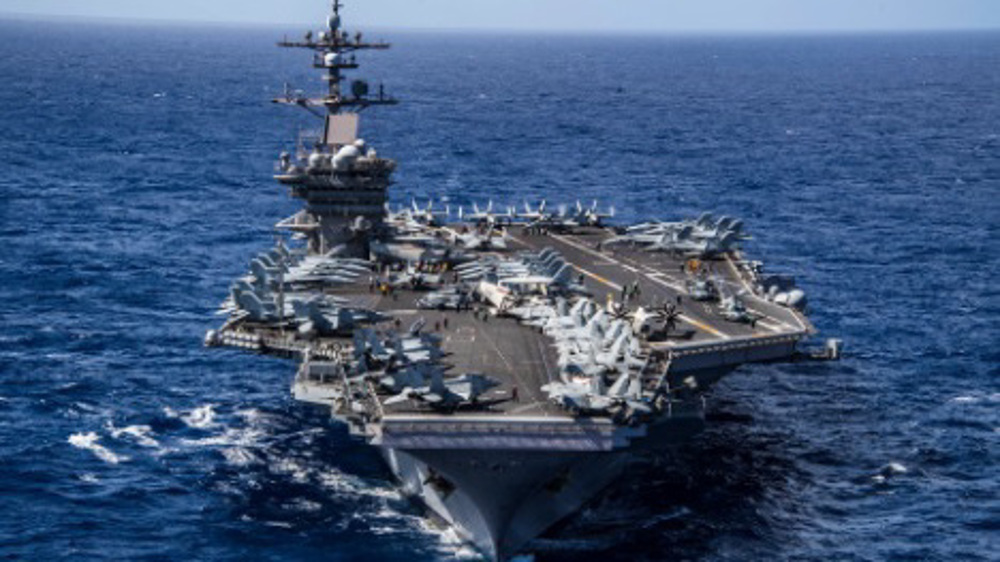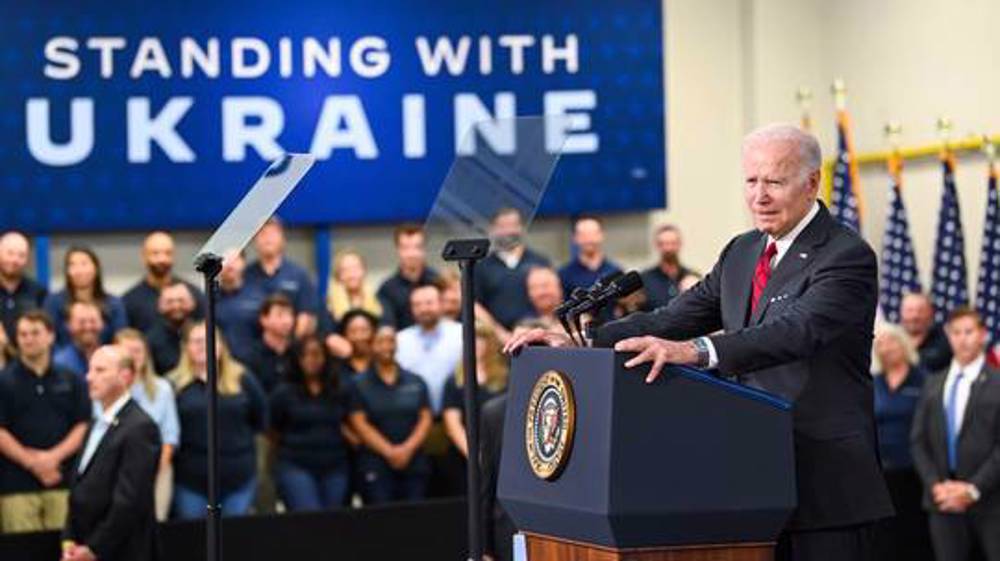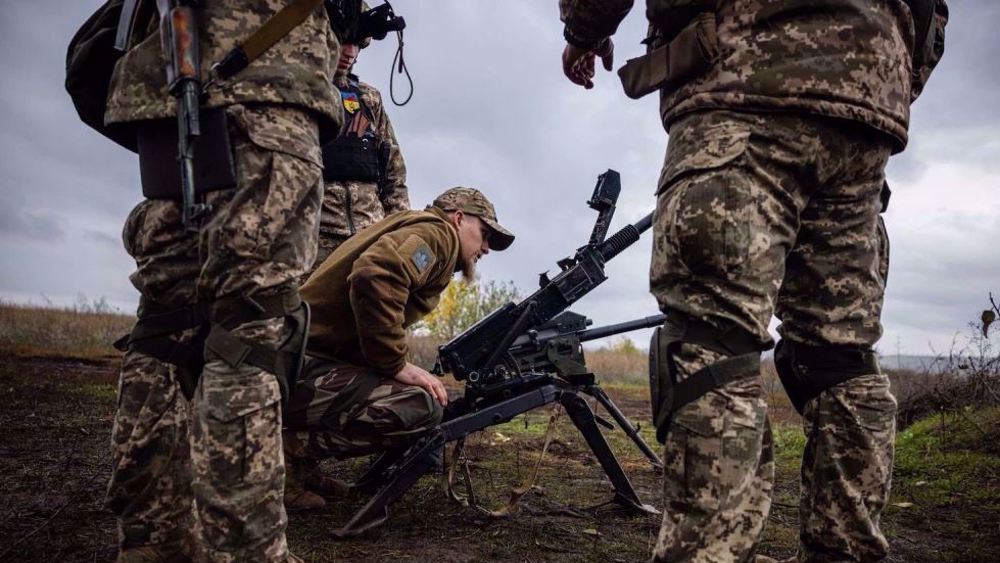US weapons sales in Europe booming amid raging Ukraine war
Sales of US weaponry and other military hardware to Europe are skyrocketing, thanks to the persisting Western-backed conflict in Ukraine, with European countries vowing to expand their arsenals by $230 billion, a research group says.
In many European countries over half of the recent military expenditures went to American arms manufacturers, with Norway devoting 83 percent to US purchases, the UK 77 percent, Italy 72 percent and the Netherlands spending 95 percent on US-made weapons in the period from 2017 to 2021, according to Stockholm International Peace Research Institute (SIPRI), with total European arms imports jumping 19 percent during that time frame from the previous five years.
“This is certainly the biggest increase in defense spending in Europe since the end of the Cold War,” said Ian Bond, director of foreign policy at the Centre for European Reform, as quoted in a Saturday report by Yahoo News.
According to the report, since the Ukraine conflict began in late February, countries in the European Union have pledged to beef up their arsenals by some $230 billion, with Germany alone planning to modernize its military to the tune of $100 billion this year.
The US arms industry, which produces and exports more weapons than any other country — selling over 39 percent of the estimated $210 billion annual global arms sales from 2017 to 2021 — has been the biggest beneficiary, it added.
“Many European countries have plans to increase their military spending very significantly, and to increase their purchases of arms as part of that,” said Pieter Wezeman, a senior researcher with the SIPRI Arms and Military Expenditure Program as quoted in the report. “And in some countries they’re accelerating” purchases originally slated for later this decade.
Even before the war, according to SIPRI, European arms imports from 2017 through 2021 were up 19%. “They’re growing at a rapid clip,” said Hartung. The amount of European arms deals being negotiated since February, he said, “has almost doubled from last year. And we've still got a few months left.”
“This is all very much driven by Russia's attack on Ukraine and the realization in Europe that defense stocks had been run down quite considerably over the last 30 years,” said Bond. He added that one reason so many countries turn to U.S. arms manufacturers is the American defense industry is so large, countries don’t have to wait for cutting-edge arms to be developed. Another reason, countries in East and Central Europe “want to keep the U.S. on their side and show that they attach value to the Transatlantic alliance,” including to NATO. “And supporting American defense manufacturers is one way in which you can do that.”
According to William Hartung, a senior research fellow at the Quincy Institute for Responsible Statecraft, since President Biden took office, European countries account for some $33 billion of arms “offers,” as the initial stage of arms negotiations is called, with $21 billion in deals on the table since February. Although some sales have not yet been officially contracted, Hartung told Yahoo News that the $21 billion estimate is assuredly low as it represents only government-to-government deals, not direct commercial sales, which are more difficult to track.
By far, the most popular high-end item from the US in Europe is the American F-35 combat airplane — with Finland putting in an order for 54 of them in 2020, while Poland ordered 32. Another 71 planes were ordered by Norway, the Netherlands and the UK, and even neutral Switzerland ordered three dozen of the fighter planes in September, for over $6 billion.
Those kinds of big-money sales “cause a lot of tension” with European arms manufacturers, said Hartung, since across Europe, the American F-35 often outsells European-made fighter jets.
Based on what arms buyers have told him, Wezeman said the F-35 has more bells and whistles than domestic models such as the Eurofighter Typhoon or Saab JAS 39 Gripen.
The US, however, doesn’t lead every arms sector in Europe, where countries tend to buy tanks from Germany and artillery from France and submarines from Germany, France or the UK But because of their high price, F-35s often take a large part of a country’s defense budget pie.

Yemen asserts enhanced military readiness; takes US aircraft carriers under firepower

After second Signalgate scandal, Democrats call for Hegseth’s resignation

US warplanes strike Yemeni capital in new acts of aggression
China supports Iran-US indirect talks, defends Tehran's nuclear right
VIDEO | Gaza’s dire conditions hit unprecedented levels
VIDEO | Press TV's news headlines
VIDEO | Pakistan’s business and cultural front unites for Gaza: Nationwide shutdown, boycott announced
US jets carry out more aggression against Yemen
Syrian militants enslaving Alawite women in Idlib governorate: Report
VIDEO | US pro-Palestinian campus protest
VIDEO | Palestinian civil defense rejects Israel’s probe and exposes the crime








 This makes it easy to access the Press TV website
This makes it easy to access the Press TV website